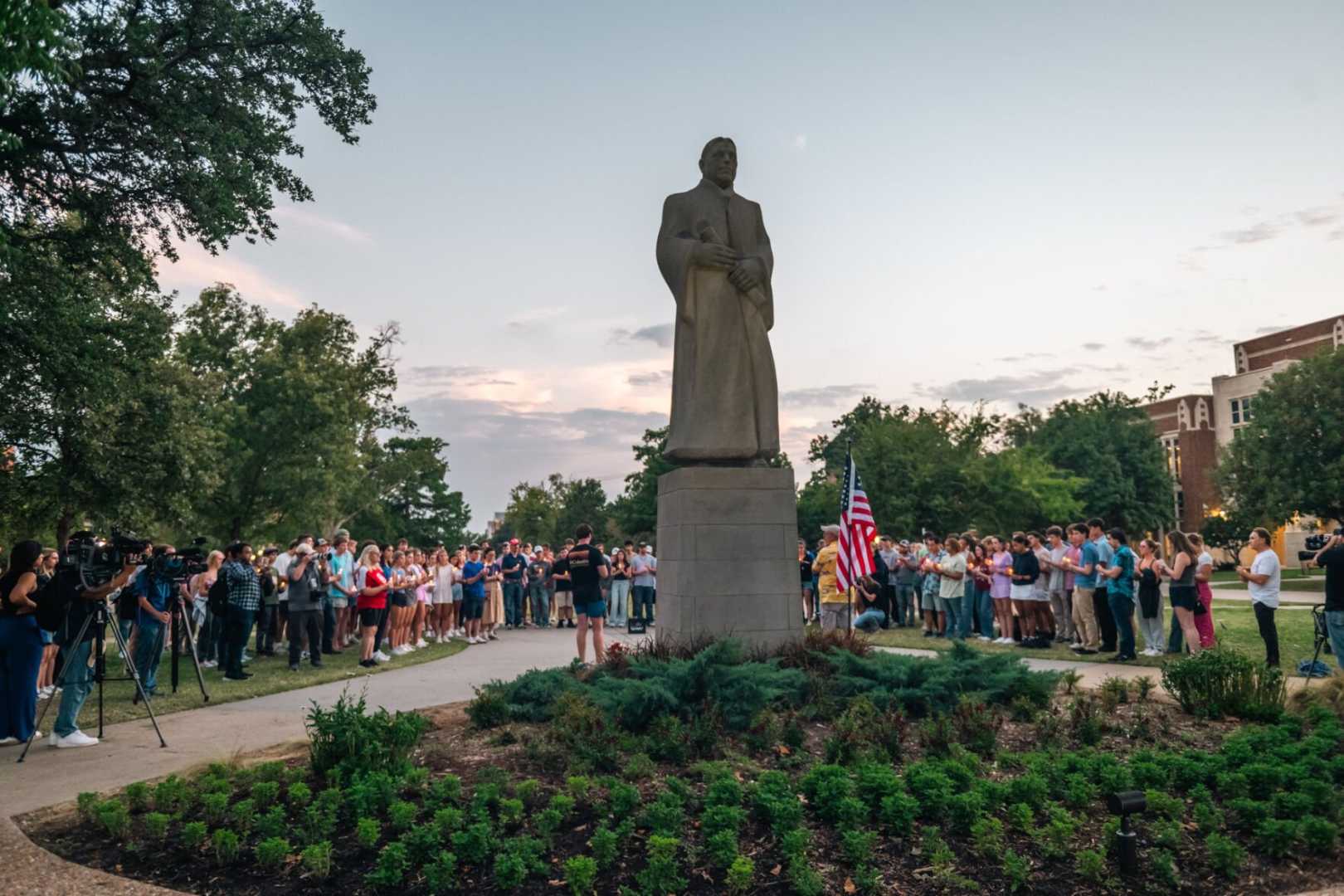Politics
Oklahoma Senators Propose Memorial for Slain Activist Charlie Kirk

OKLAHOMA CITY, Okla. — Oklahoma Republican lawmakers have introduced a bill requiring public universities in the state to construct a memorial plaza for Charlie Kirk, a conservative activist shot and killed on September 10. The legislation mandates that each institution honor Kirk by creating a prominent plaza featuring a statue and permanent signage describing him as a civil rights leader.
The bill, introduced by Senators Shane Jett and Dana Prieto, demands each public university submit detailed plans by March 1, 2027, for a plaza in a highly visible area on campus. The statue can depict Kirk sitting at a table with an empty chair opposite him or with his family.
Supporters of the bill believe Kirk’s legacy should be commemorated in higher education, where he was known for advocating free speech and conservative values. Jett referred to Kirk as a “faithful servant of Christ” whose contributions to American discourse were significant.
However, the proposal has sparked considerable debate. Critics, including Martin Luther King III, have condemned the comparison of Kirk to historical civil rights figures, arguing that Kirk’s rhetoric often undermined inclusivity. King called Kirk’s claims to civil rights leadership a “grave falsehood,” emphasizing that his father fought for unity.
Additionally, poll results suggest Kirk is not well-liked among students; a recent survey indicated that over 70% of students at various institutions disagreed with his views. Proponents of the bill, however, maintain that establishing his memorial is crucial for preserving his legacy.
If the bill passes, failure to comply by constructing the memorial could result in a financial penalty of 1% of the institution’s budget per month. The institutions would also be tasked with protecting the statues from vandalism, with punitive measures including expulsion of offenders.
As this legislation moves forward, it raises questions about the role of institutions in shaping public narratives and honoring controversial figures, amidst ongoing discussions about free speech and political expression in educational settings.












